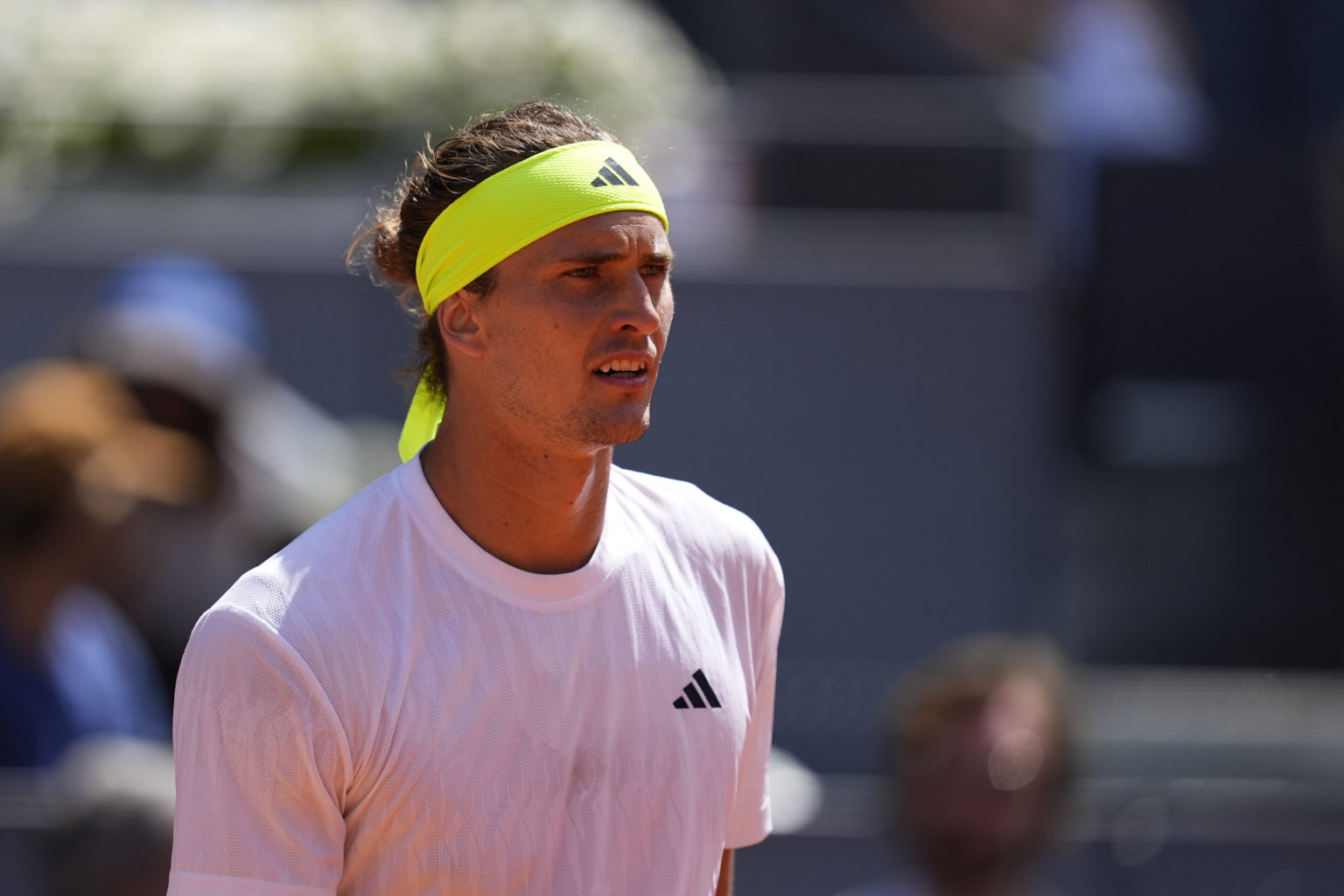
The 2025 Madrid Open has been a crucible of high-stakes tennis, but for Alexander Zverev, the world No. 2, a third-round clash against Spain’s Alejandro Davidovich Fokina on April 27 became a flashpoint for controversy. Zverev, the top seed, battled through a grueling 2-6, 7-6(3), 7-6(0) victory on the clay courts of the Caja Mágica, but the match was overshadowed by a heated dispute over electronic line-calling (ELC). The German’s frustration, culminating in an unprecedented act of taking a phone photo of a contested ball mark, earned him a warning for unsportsmanlike conduct and ignited a broader conversation about technology’s role in tennis. Now, Zverev is calling for a rule change to address what he sees as flaws in the system, a stance that has divided fans and players alike.
The match began with Davidovich Fokina, ranked No. 29, seizing control. The Spaniard, buoyed by a partisan crowd at Manolo Santana Stadium, dominated the first set 6-2, capitalizing on Zverev’s uncharacteristic errors. A break early in the second set put Zverev on the ropes, but the German clawed back, leveling the set after a shaky service game from his opponent. The turning point came at 5-4 in the second set, with Davidovich Fokina serving to stay in the set. A backhand from the Spaniard, ruled in by the ELC, sparked Zverev’s ire. Convinced the ball was out, he pleaded with umpire Mohamed Lahyani to inspect the mark. “The machine is not working. Look at this mark … Don’t overrule it, please come down,” Zverev urged, pointing to the clay. When Lahyani explained that ELC rulings are final, Zverev retrieved his phone, snapped a photo of the mark, and later posted it on Instagram with the caption, “Just gonna leave this one here. This was called in. Interesting call.” The crowd, already rallying behind their compatriot, booed loudly, and Lahyani issued a code violation for unsportsmanlike conduct.
Zverev’s actions were not isolated. Players like Aryna Sabalenka, Eva Lys, and Victoria Azarenka have also photographed ball marks in recent tournaments, reflecting growing unease with ELC on clay, where marks traditionally offer visual proof. “So crazy that umpires are not able to overrule this!” world No. 21 Donna Vekic posted on X, echoing Zverev’s frustration. The German elaborated post-match, telling Ziggo Sport, “Well, Mohamed knew. I mean, he knew, Ale knew that it was out.” He argued for a review mechanism, suggesting, “I think maybe after the matches…” umpires should have the ability to reassess ELC calls using physical marks, a practice long standard in clay-court tennis before the ATP’s full adoption of ELC in 2025.
Despite the controversy, Zverev’s resilience shone through. He cruised through the second-set tiebreak and, after squandering a chance to serve out the match at 5-4 in the third, dominated the final tiebreak 7-0, ending Davidovich Fokina’s hopes and Spain’s men’s singles campaign. “The first set wasn’t my best tennis, but it is sport and it can change quickly,” Zverev said, praising his opponent’s form. “Alejandro is playing unbelievable tennis, the best of his life, so I am happy to be through.” His 11 aces and 17 fewer unforced errors than Davidovich Fokina (28 vs. 45) underscored his ability to refocus amid adversity.
Zverev’s call for reform taps into a broader tension between tradition and technology. Clay’s unique ability to retain ball marks has historically allowed umpires to verify calls, a human element now sidelined by ELC’s automation. Critics argue the system, while precise on hard courts, struggles with clay’s variable surface, where dust and court conditions can distort readings. Zverev’s Munich title and straight-sets win over Roberto Bautista Agut in Madrid’s second round had signaled a return to form, but this incident highlights the mental and emotional demands of his pursuit of a third Madrid title, last won in 2021.
As Zverev prepares to face Francisco Cerundolo in the fourth round, the boos from the Madrid crowd may linger, but his focus remains unwavering. His push for a rule change could reshape how tennis balances innovation with its storied traditions, making this victory a pivotal moment in his 2025 campaign and the sport’s ongoing evolution.
Leave a Reply